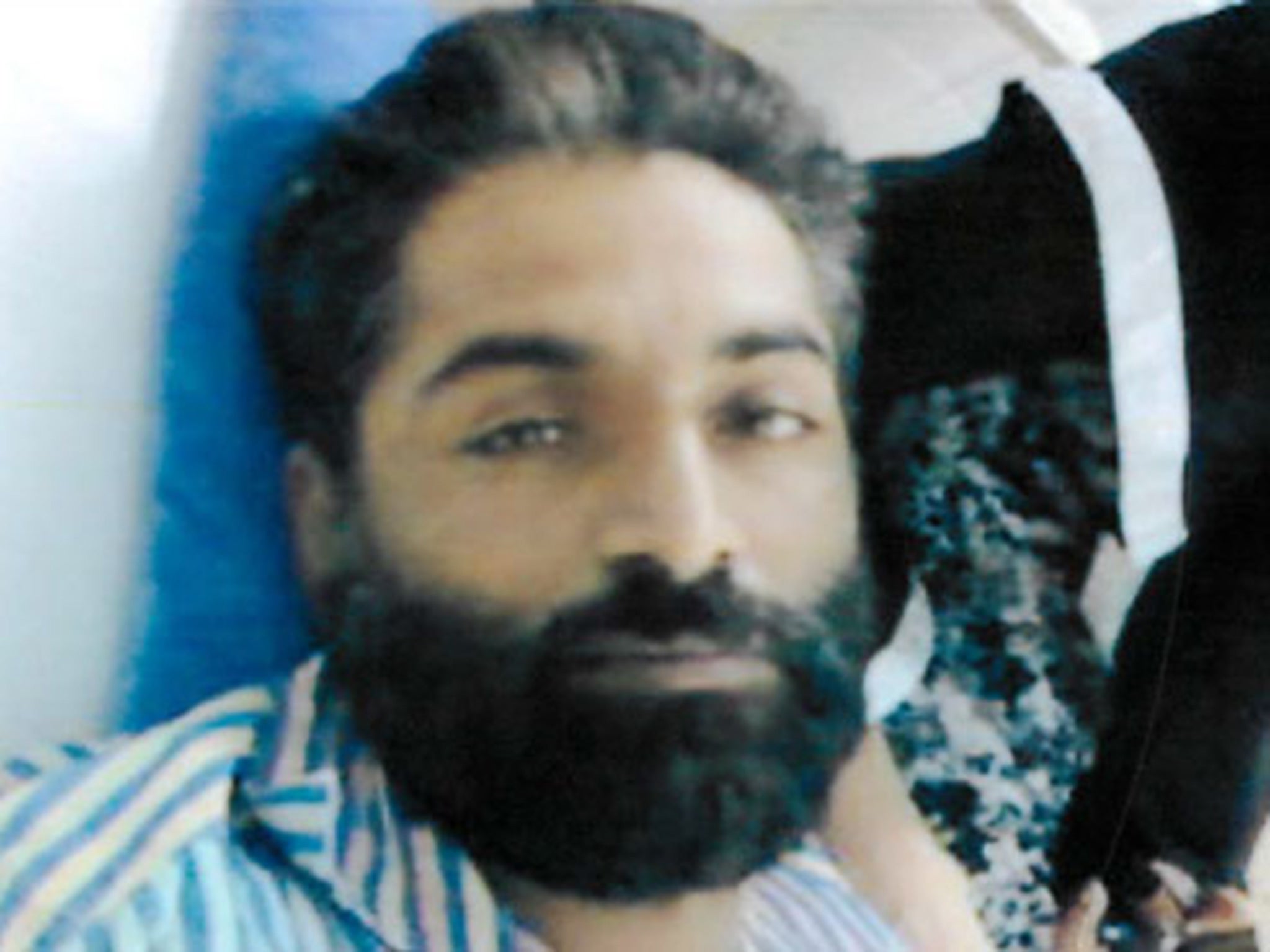Pakistan: Paralysed death-row prisoner 'suffering life worse than hell' after stay of execution expires
Abdul Basit’s mother tells The Independent his ‘life has become a bigger punishment than death’

A paralysed death-row prisoner in Pakistan is living in conditions "worse than hell" after his stay of execution expired, his family has said.
Abdul Basit, who was convicted for murder in 2009, has had three executions called off at the last minute over the past year because Pakistan’s prison rules do not include provisions for hanging people in wheelchairs.
Under Pakistani law, a prisoner sentenced to death should be able to “reach the execution point on his own feet”.
Campaigners say hanging a man in a wheelchair involves a substantial risk of problems - and fear it could see Basit being slowly strangled or decapitated.
The 44-year-old, his family and his legal team are calling on the government to grant him clemency, despite no pardon having been granted to any death-row prisoner since a moratorium on executions was lifted in the country in 2014.
Mr Basit’s mother, Nurat Parveen, told The Independent: “My son has lived in conditions worse than hell while he was paralysed. His life itself has become a bigger punishment than death.
“The only hope left for him is to live enough for those who are dependent on him emotionally.”
She said the family was happy when the country's president initially issued the stay of execution, declaring her son unfit for execution.
But she said: “We are also afraid – what will happen now the stay has expired? When we think about it, we find ourselves in a limbo and don’t know what are they [the government] going to do with my son.
“I beg Mr President, Mr Prime Minister and the judiciary, please have mercy on my son. He has already suffered a lot. He is already half dead. What will they get if they execute a paralysed man, a helpless paralysed man who is already in prison for life? Basit deserves mercy.”
Mr Basit’s wife, Musarat Bibi, told The Independent: “It is not only my husband who is being punished by the legal system.
"It is his entire family who is suffering through this, especially my children. They haven't visited their father in years as he didn't want them to see him lying on jail floor, not able to walk.
“I know Basit is paralysed but in our patriarchal society a father's name, his presence mean a lot to his children. Basit's execution, will not only take away his life but it will also kill his children, his wife and his family."
Mr Basit was sentenced to death in 2009, and was moved from Sahiwal jail to Faisalabad’s central jail a year later.
However, after a few months in the facility he contracted tuberculosis meningitis. Complications with the illness - which lawyers say were a result of negligence - caused him to lose all movement in his limbs, and he was rendered incontinent.
Human rights attacks around the world
Show all 10Wassam Waheed, a spokesman for legal aid group Justice Project Pakistan, said Basit was in a coma for 22 days after contracting the illness, and has since “spent six years on the prison floor, unable to move and reliant on others for personal hygiene”.
“Basit has always maintained his innocence," he said.
"He has endured a fate much worse than death time and time again. The danger remains that in the absence of instructions from the Federal Government, the jail authorities are likely to forward a request for a fresh warrant of execution in the coming days.
"If that happens, Basit will once again have to endure being segregated and count down the hours to his death."
A report by UN Special Rapporteur on Torture and Other Cruel, Inhuman or Degrading Treatment or Punishment, Juan Méndez, published in February this year, urged the Government of Pakistan to “refrain from carrying out death sentences and abolish the practice of executions”.
“In sentencing Mr Basit, a person suffering from a disability, to death, has violated his right to be free from torture or cruel, inhuman or degrading treatment,” it said.
The Pakistan Government lifted a moratorium on executions in December 2014 following a Taliban attack on a school in Peshawar which claimed the lives of 134 students and 19 adults.
From the end of the suspension until February 2016, 351 people were executed in the country, and despite claims from the Government that the death penalty was intended to target terrorists, a report by Reprieve found 90 per cent of those executed had no terrorist links.
The report also says Pakistan now ranks third in the world - behind only Iran and China - in terms of executions.
Subscribe to Independent Premium to bookmark this article
Want to bookmark your favourite articles and stories to read or reference later? Start your Independent Premium subscription today.

Join our commenting forum
Join thought-provoking conversations, follow other Independent readers and see their replies